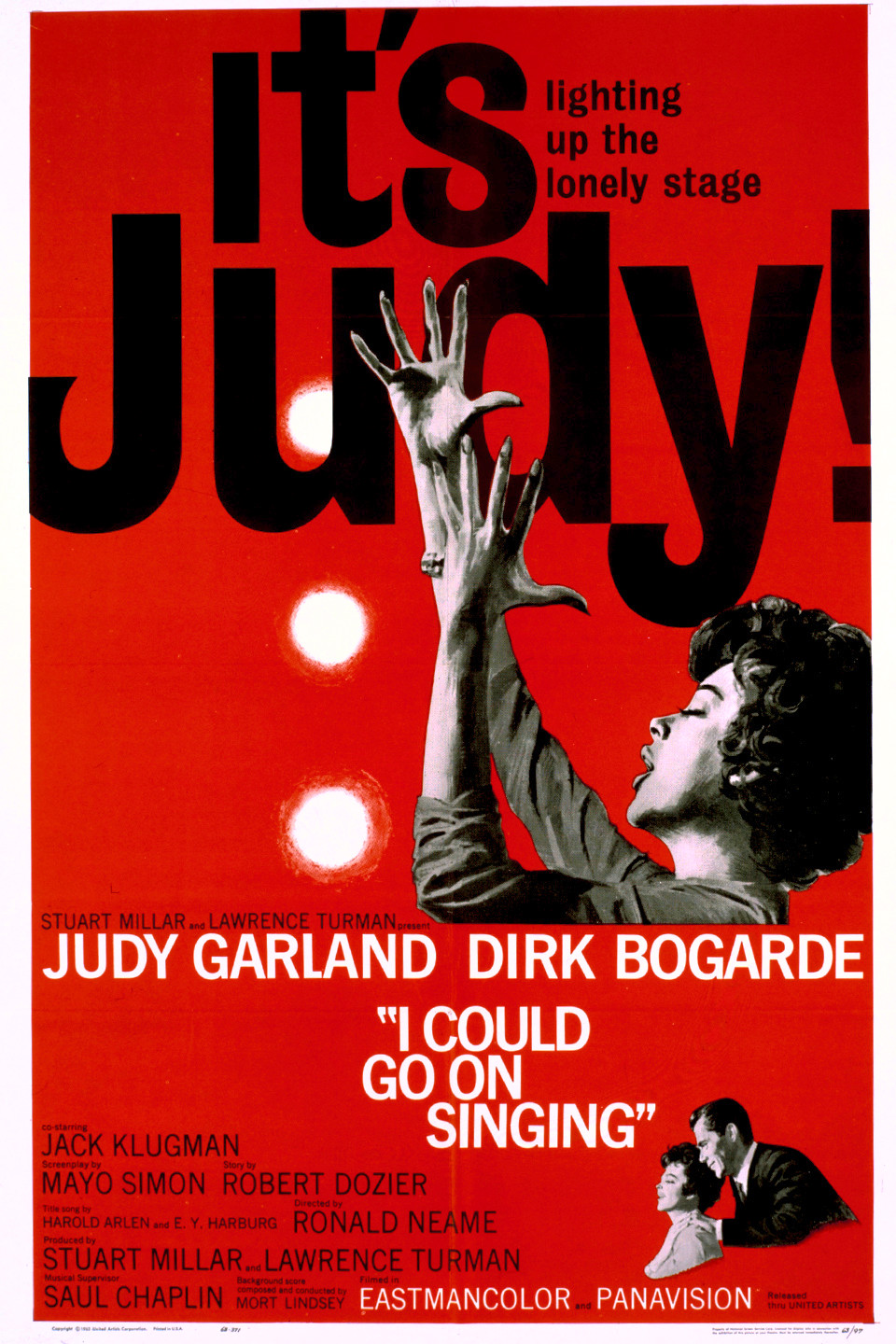 We have reached the end of Juy Garland's film career. From this point forward, this series will be focused exclusively on her television appearances. So, why not play Judy out the way she's remembered best, belting a big number in glorious Technicolor? But the hopeful title and Judy's brassy voice belie a darker truth. This week's number serves not only as the title song of the film, but also as a thesis for Judy Garland's later career.
We have reached the end of Juy Garland's film career. From this point forward, this series will be focused exclusively on her television appearances. So, why not play Judy out the way she's remembered best, belting a big number in glorious Technicolor? But the hopeful title and Judy's brassy voice belie a darker truth. This week's number serves not only as the title song of the film, but also as a thesis for Judy Garland's later career.
The Movie: I Could Go On Singing (United Artists, 1964)
The Songwriters: Harold Arlen and E.Y. Harburg
The Players: Judy Garland & Dick Bogarde, directed by Ronald Nearne
The Story: If A Star Is Born represents Judy Garland's image as a tragic, romantic figure in Hollywood, then I Could Go On Singing may be the closest Garland got to a public confession of how messy the tragic parts of her life coud be. Filmed in England while Judy battled for divorce (and custody of her younger children) with Sidney Luft, the film looked like life mirroring art mirroring life. The story of a concert singer whose relationships disintegrate even as she tries to shield (and connect to) her estranged son incorporated biographical details and observations straight from Judy herself. Co-star Bogarde reported rewriting large scenes with Garland to incorporate her own musings on celebrity, addiction and performance.
Perhaps most telling is the scene that happens directly before Judy performs this number. She's all smiles and charm while placating the audience she kept waiting. She looks restored just stepping onstage. However, just moments before, injured and recovering from a destructive bender, she destroys the idea that performing was a pallative:
"There's an old saying: When you go onstage, you don't feel any pain; and when the lights hit you, you don't feel anything...It's a stinking lie."